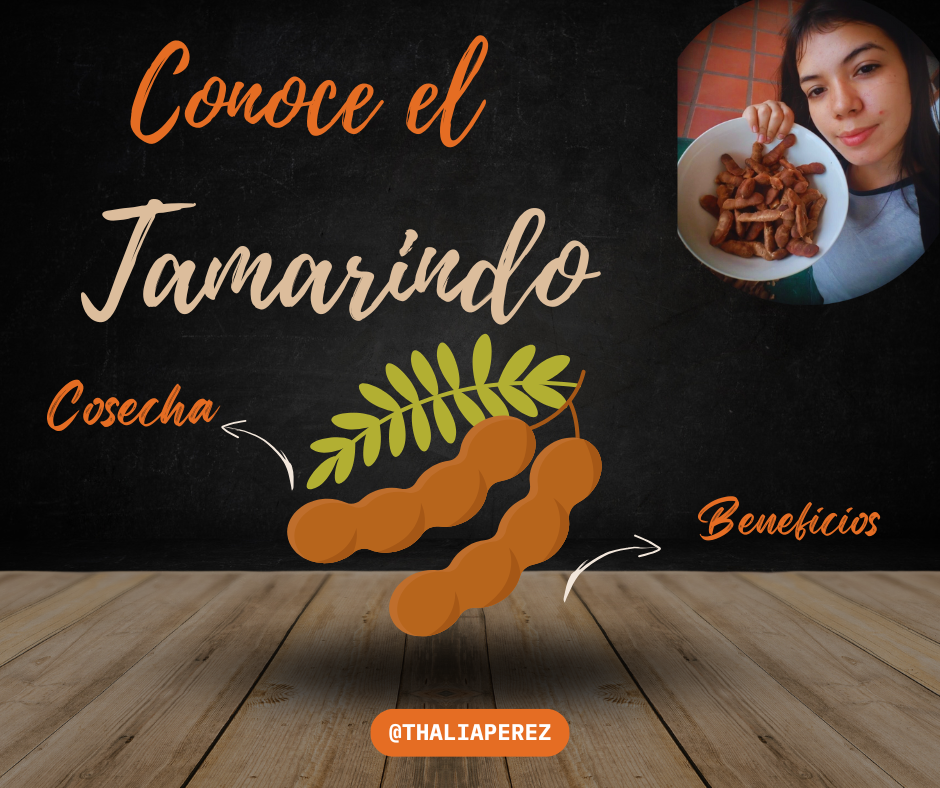
¡Hola a todos! Hoy quiero compartir con ustedes un proceso sencillo y delicioso: cómo pelar el tamarindo. Este fruto tropical no solo es sabroso, sino que también está lleno de propiedades beneficiosas para nuestra salud. ¡Así que empecemos!
Hello everyone! Today I want to share with you a simple and delicious process: how to peel tamarind. This tropical fruit is not only tasty, but also full of beneficial properties for our health, so let's get started!

Mi novio y yo aprovechamos el tiempo de descanso para encargarnos de pelar medio saco de tamarindo que habíamos cosechado semanas atrás y por falta de tiempo, no habíamos podido arreglarlo y escogelo.
My boyfriend and I took advantage of the time off to take care of peeling half a sack of tamarind that we had harvested weeks ago and due to lack of time, we had not been able to arrange and pick it.


Primero, el tamarindo es una legumbre que crece en una vaina y tiene una pulpa dulce y ácida. Para comenzar a pelarlo, necesitamos un tamarindo maduro. La cáscara es marrón y un poco fibrosa, así que lo primero que haremos es tomar una vaina y presionar suavemente con nuestras manos para abrirla. Esto nos permitirá acceder a la pulpa jugosa en su interior.
First, tamarind is a legume that grows in a pod and has a sweet and sour pulp. To start peeling it, we need a ripe tamarind. The peel is brown and a bit stringy, so the first thing we will do is take a pod and gently press it open with our hands. This will allow us to access the juicy pulp inside.
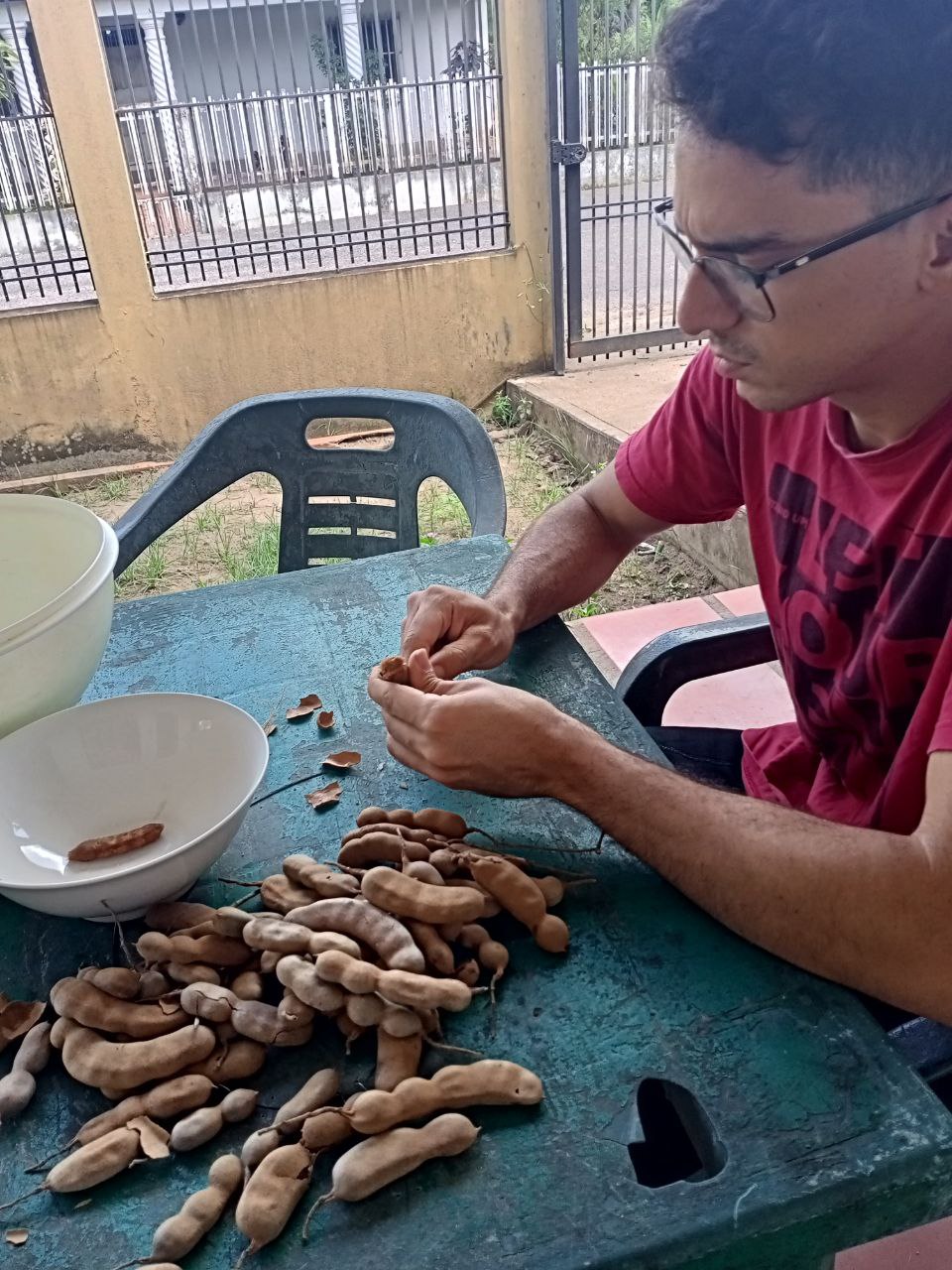
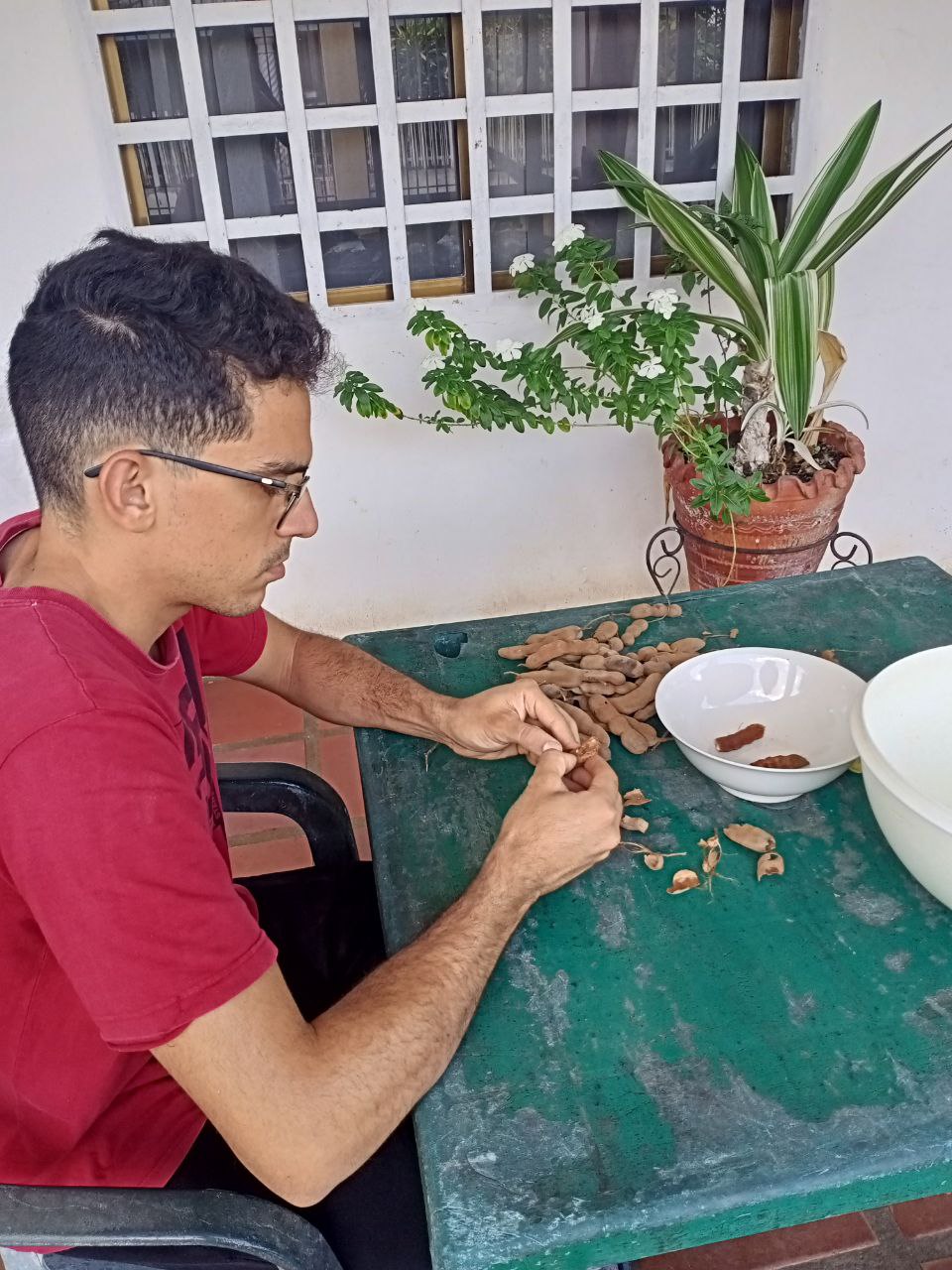
Una vez abierta la vaina, verán que la pulpa está rodeada de una especie de membrana que también es comestible. Con un cuchillo o simplemente con los dedos, podemos separar la pulpa de la cáscara. Este proceso es bastante fácil y, aunque puede ser un poco pegajoso, ¡es parte de la diversión!
Once the pod is opened, you will see that the pulp is surrounded by a kind of membrane that is also edible. With a knife or simply with our fingers, we can separate the pulp from the peel. This process is quite easy and, although it can be a bit sticky, it's part of the fun!
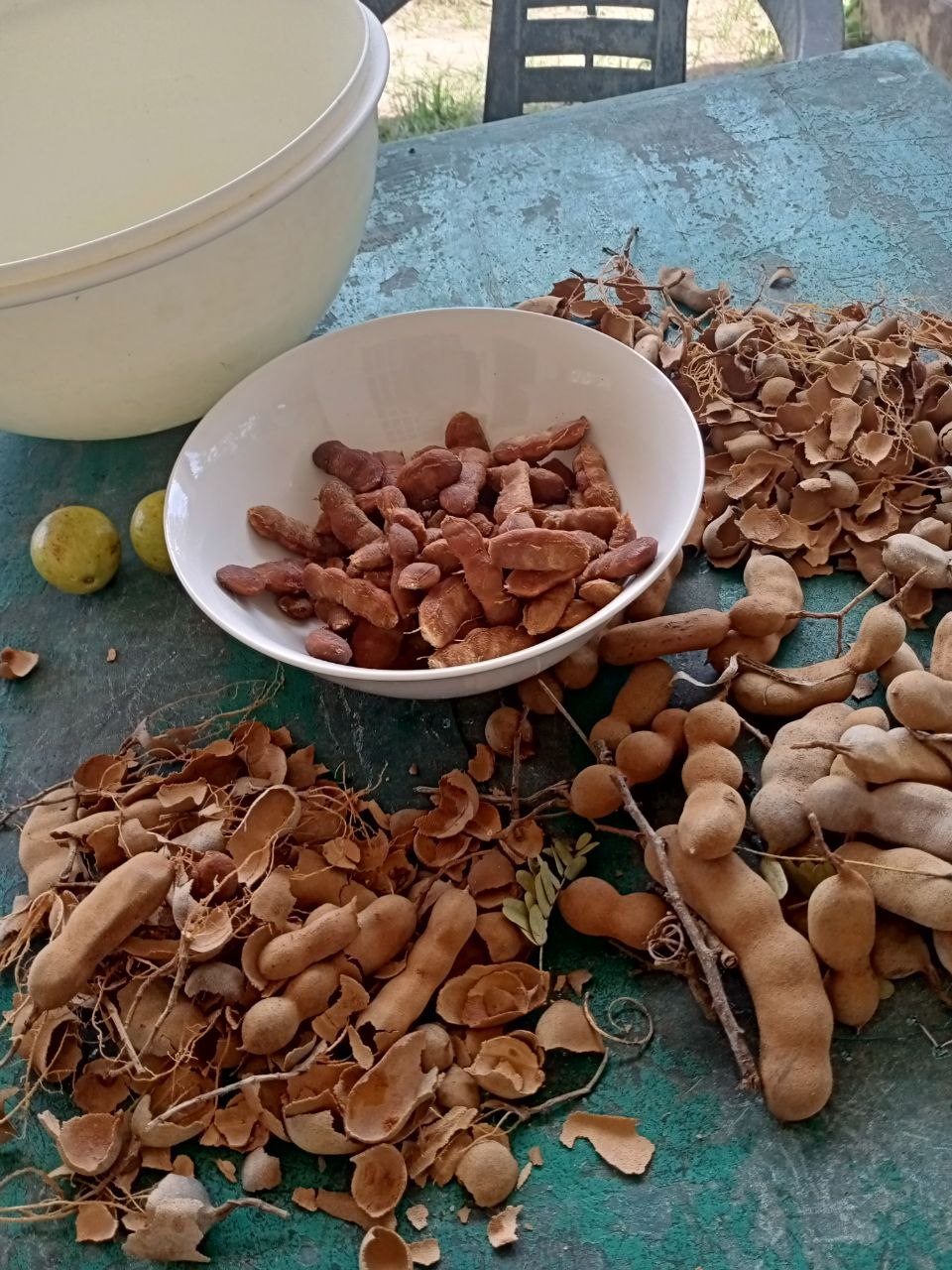
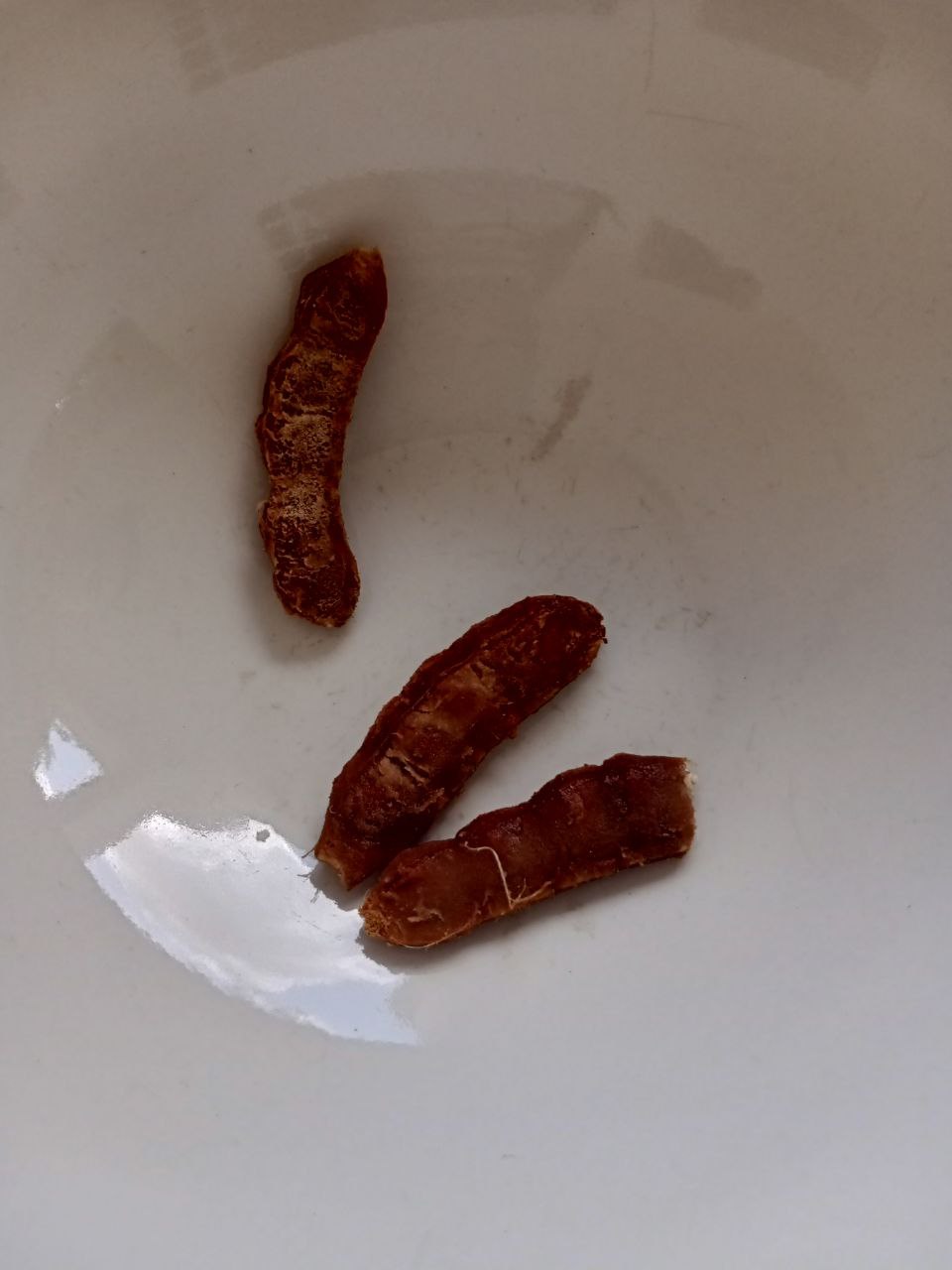
Ahora, hablemos de las propiedades del tamarindo. Este fruto es rico en antioxidantes, vitaminas B y C, así como en minerales como el potasio y el magnesio. Su consumo puede ayudar a mejorar la digestión, ya que es un laxante natural y puede aliviar problemas estomacales. Particularmente en este punto puedo decirles que mis tía suelen tener algunos problemas con el extreñimiento y este ha sido de gran ayuda en momentos en los que están afectadas.
Now, let's talk about the properties of tamarind. This fruit is rich in antioxidants, vitamins B and C, as well as minerals such as potassium and magnesium. Its consumption can help improve digestion, as it is a natural laxative and can alleviate stomach problems. Particularly at this point I can tell you that my aunt often have some problems with constipation and this has been a great help at times when they are affected.

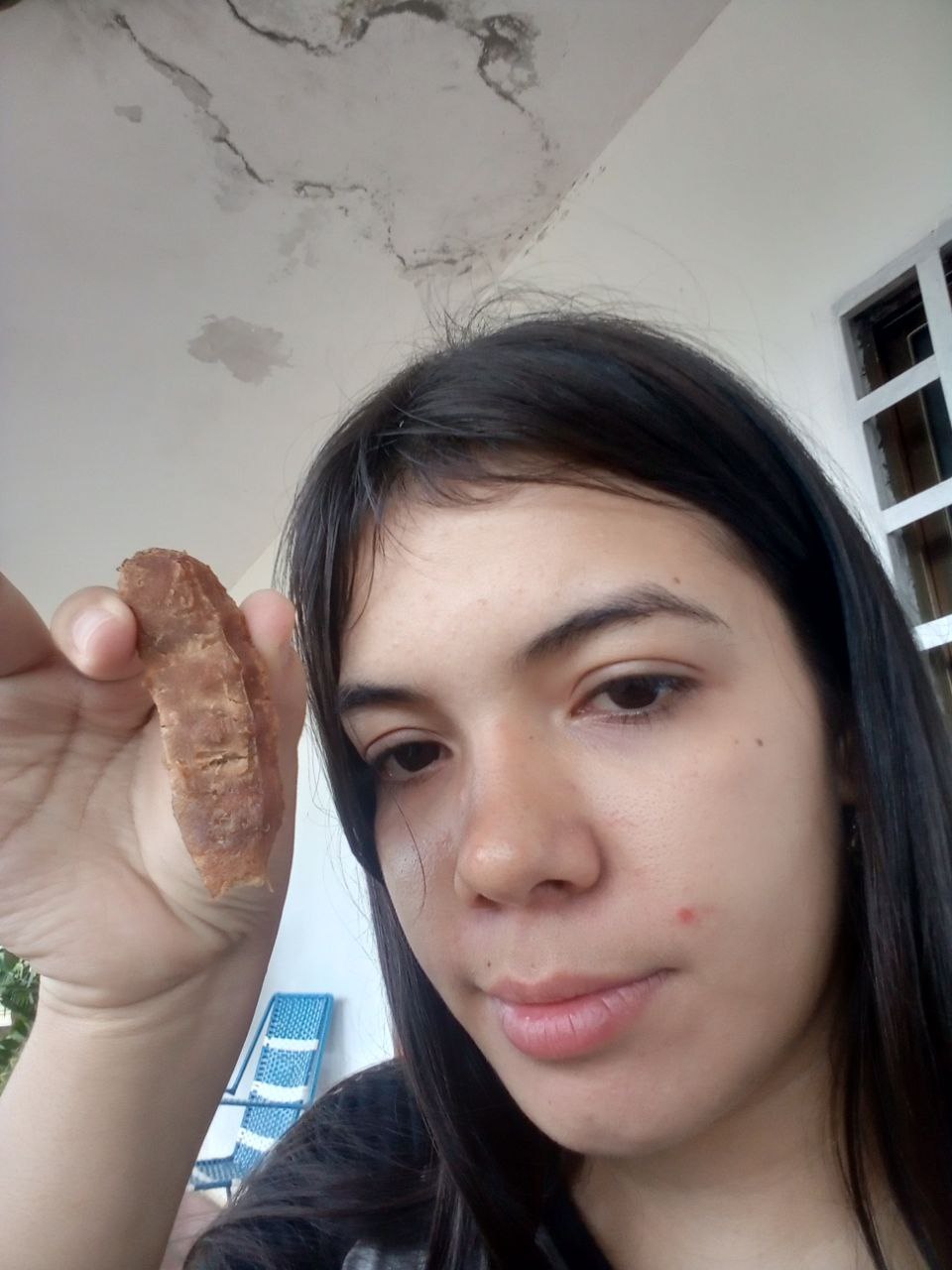
Además, el tamarindo tiene efectos antiinflamatorios y puede contribuir a la salud del corazón al reducir los niveles de colesterol. También es conocido por su capacidad para regular el azúcar en sangre, lo que lo convierte en un aliado para quienes padecen diabetes.
In addition, tamarind has anti-inflammatory effects and can contribute to heart health by reducing cholesterol levels. It is also known for its ability to regulate blood sugar, which makes it an ally for those suffering from diabetes.
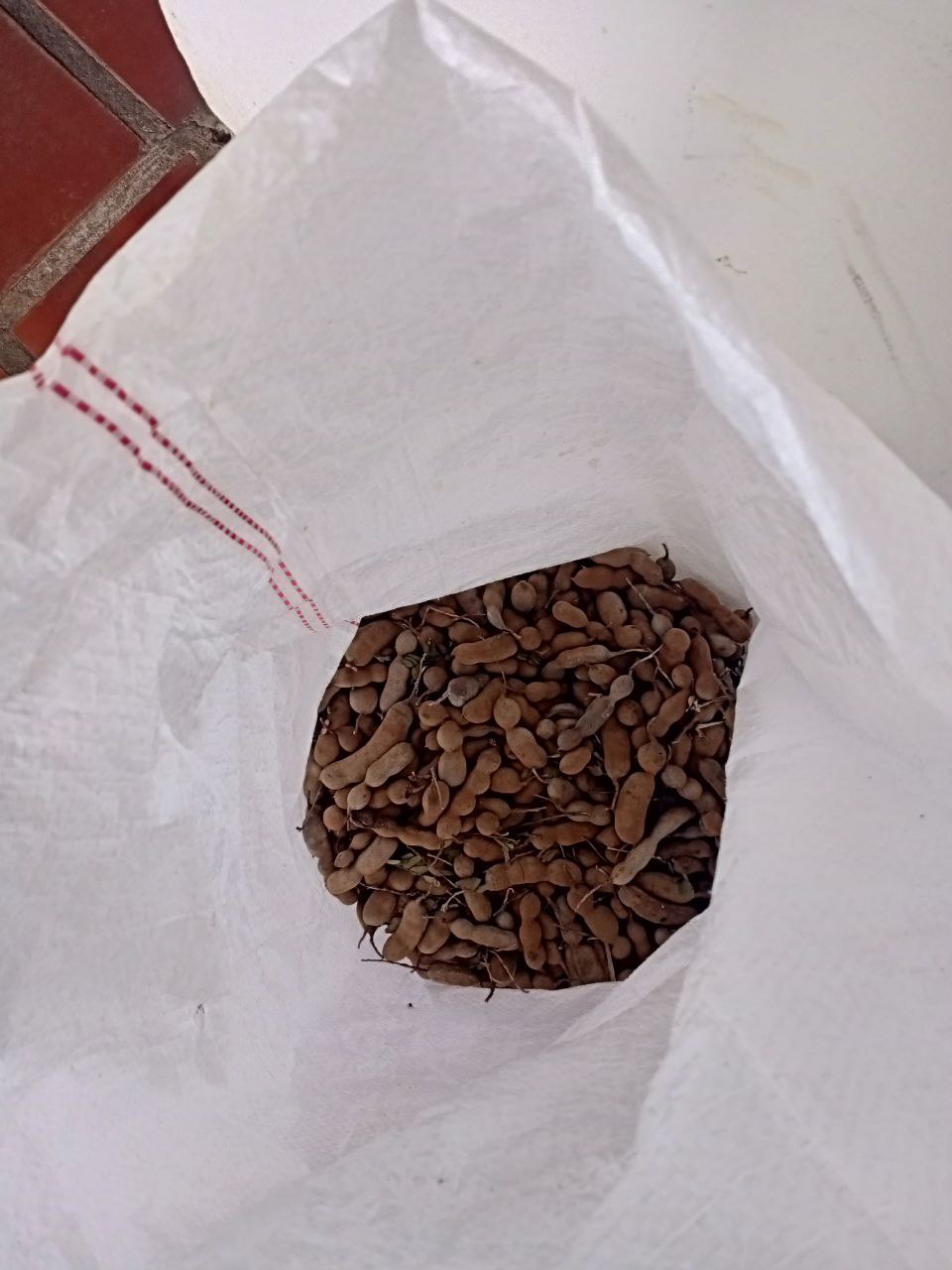

Una vez que hemos pelado el tamarindo, podemos disfrutar de su pulpa en jugos, salsas, o simplemente como un snack saludable. Así que, anímense a probarlo y disfrutar de todos sus beneficios. ¡Hasta la próxima!
Once we have peeled the tamarind, we can enjoy its pulp in juices, sauces, or simply as a healthy snack. So, go ahead and try it and enjoy all its benefits, see you next time!